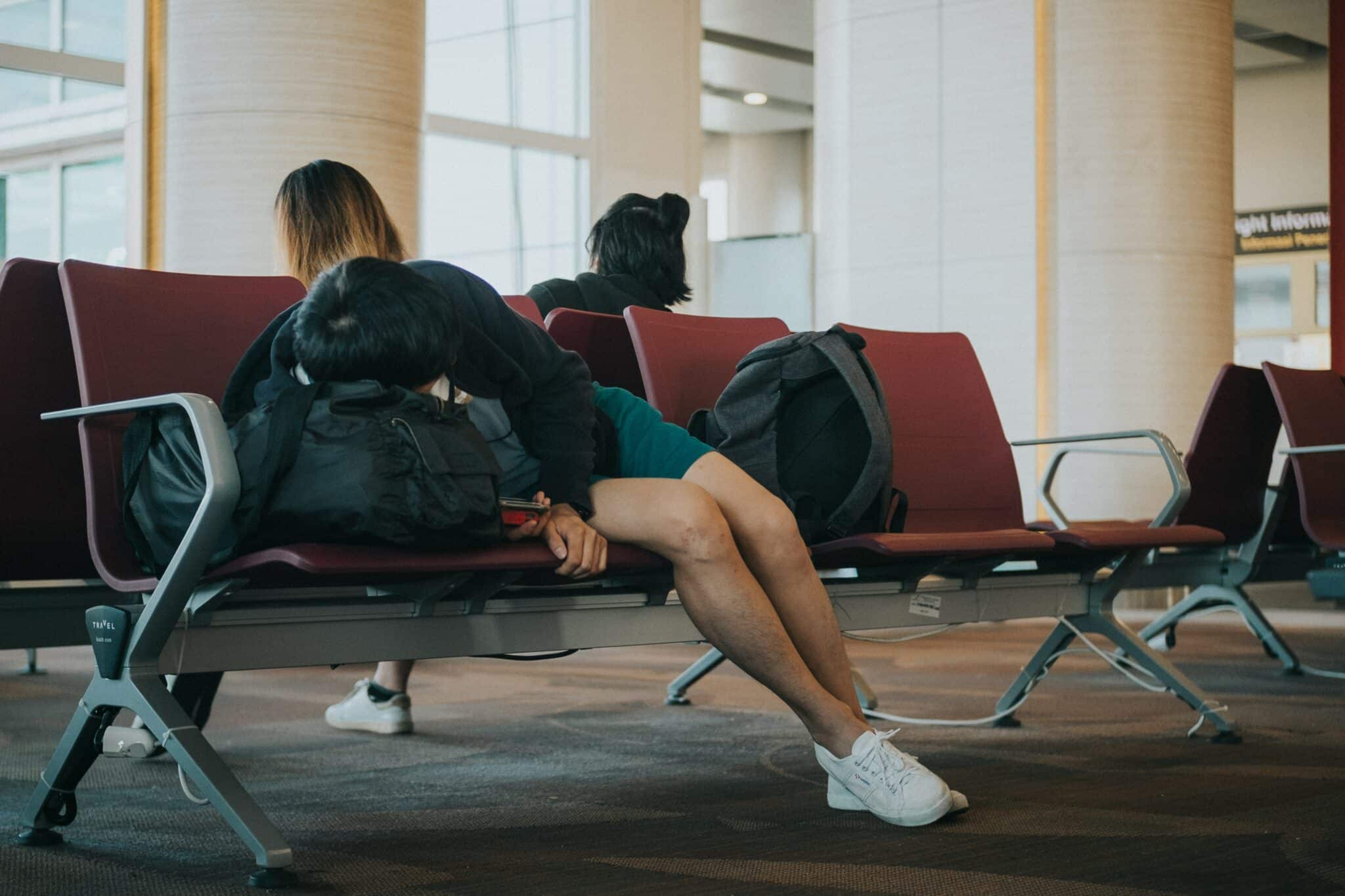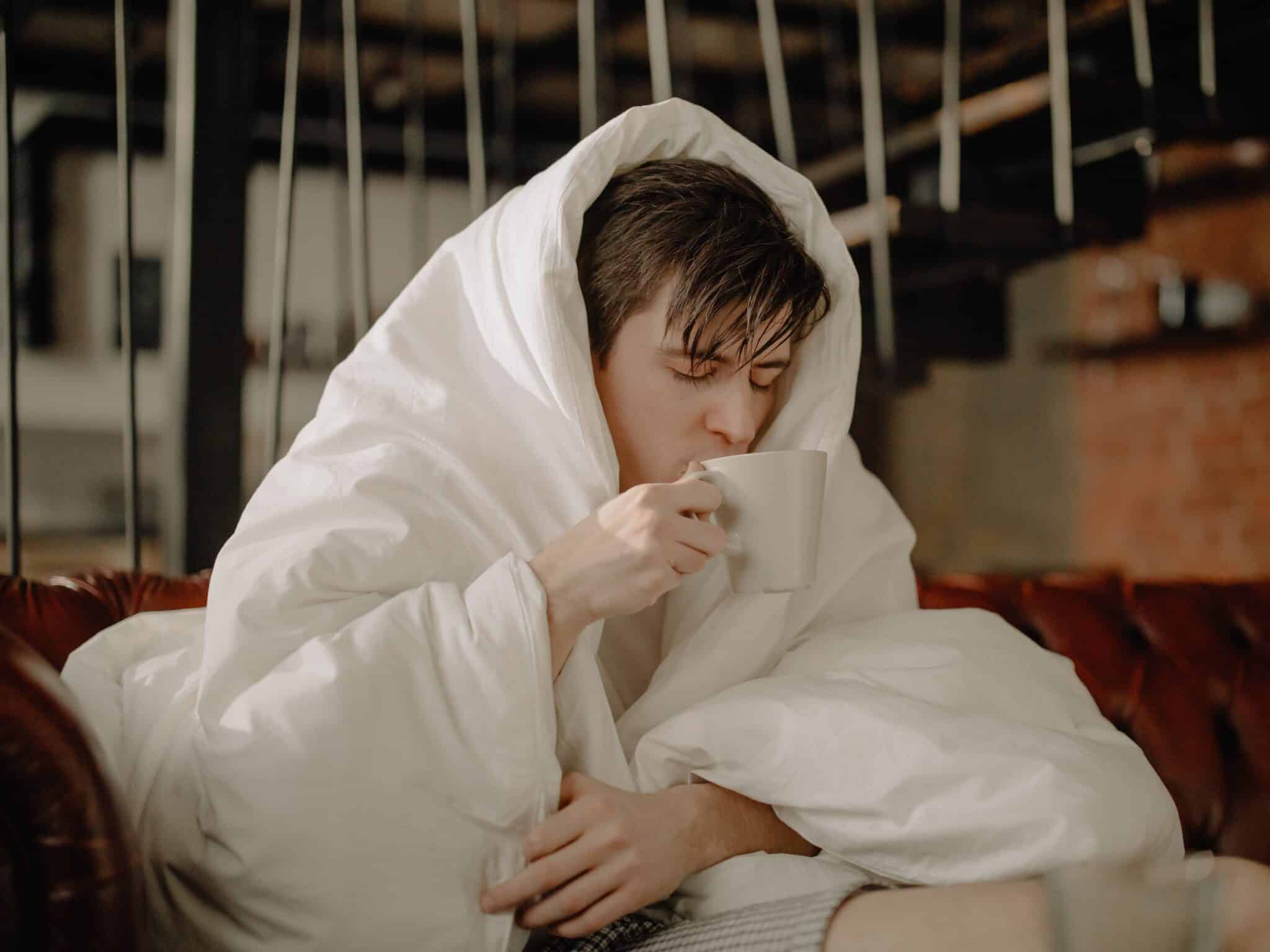Traveling & Sleep Hygiene: 5 Tips For Better Sleep While Traveling

Traveling can certainly be a lot of fun and even a life-changing experience. However, it can also disrupt your sleep patterns, which can negatively impact your overall enjoyment of the trip. Especially if you’re traveling across time zones.
The good news is you can avoid most of this if you follow good sleep hygiene practices. And, in this post, we’ll share everything you need to know about it.
Today we’ll share:
- What sleep hygiene is
- How traveling can impact your sleep
- How to get better sleep while traveling: 6 tips
Ready? Let’s get started.
What is Sleep Hygiene?
Essentially, sleep hygiene refers to healthy sleep habits. As you already know, getting good sleep is crucial to keep a healthy and balanced life. In fact, your sleep quality is not only affected by what you do before going to bed but also by your overall behavior throughout the day. And in truth, most of this behavior changes when you travel.
Sleep & Traveling: How it Can Affect You
As we’ve already mentioned, traveling can be an exciting and adventurous experience. However, it can also alter your sleep due to multiple changes, such as:
- Diet and exercise routines
- New or uncomfortable sleep environments
- Schedule changes
- New time zones, which lead to jet lag
- Pre-travel busyness and stress, which lead to travel fatigue
As a result, traveling can lead to fatigue, disturbed sleep, and even insomnia. Let’s take a closer look at each item.
Diet and Exercise Routines
Oftentimes, people take traveling as an opportunity to indulge in delicious food and drink more than usual. However, these changes may have a negative impact on your sleep.
Why? Heavier meals and alcoholic beverages make it harder to fall asleep. Besides, those who exercise regularly -which promotes consistent sleep- may have to interrupt or modify their routine while they are away.
New or Uncomfortable Sleep Environment
Many studies have shown that people have poorer sleep on their first night in a new sleep environment. In fact, this is also known as the “first night effect”. According to some researchers, part of the brain remains active while sleeping in new places as an evolutionary survival strategy.
Generally, this improves after one night or two, but that’s not always the case during a trip. Especially, if your accommodation:
- Has an uncomfortable bed
- Is noisy
- Is overly bright
As a result, getting uninterrupted sleep may be challenging.
Schedule Changes
Sleep problems can be caused by changes to a person’s daily schedule, such as their bedtime, or just their routine.
This is often the case when traveling for business or vacation. Travelers may overload their schedules with multiple activities to make the most out of each day. This may lead to overstimulation and even insufficient sleeping time.
Jet Lag
Jet lag is a sleep disorder caused when an individual’s internal clock is out of sync with the destination’s time. Oftentimes, this happens when traveling across two or more time zones, especially eastward.
Some frequent jet lag symptoms are:
- Daytime drowsiness
- Inability to fall asleep at your destination’s nighttime
- Gastrointestinal issues
- Memory or concentration problems
Jet lag symptoms usually decrease after a day or two. However, this will vary depending on how many time zones a person has traveled through.
Travel Fatigue
Stress caused by traveling itself can lead to travel fatigue. Additionally, contrary to jet lag, the onset of travel fatigue can occur without crossing any time zones.
Multiple travel aspects can lead to travel fatigue, such as:
- Motion sickness
- Lengthy travel
- Delays or interruptions affecting your itinerary
- Logistics stress, including packing and arriving on time
- Sleeping problems while traveling
- and more
Symptoms of travel fatigue may include, confusion, tiredness, and headaches. Nonetheless, they usually fade after a sufficient restful sleep and a normal diet.
5 Tips for Better Sleep While Traveling
To improve the quality of your sleep as you travel, we advise you to:
- Implement a sleep strategy
- Try to synch up with the local schedule
- Be mindful of light exposure
- Take melatonin
- Follow the two-day rule
Implement a Sleep Strategy
A great way to minimize jet lag is to implement a sleep strategy before your departure. Three days before your trip, we suggest you start moving your bedtime an hour earlier or later (depending on your destination’s time zone). Generally, it takes one day per time zone for your body to adjust. So, planning ahead can be a great ally for this transition.
Try to Synch Up with the Local Schedule
The best you can do after your landing is to try to follow the local schedule. This means that if you’re arriving during daylight, then maybe try to sleep on the plane. In contrast, if your arrival is scheduled during night hours, try to stay awake during your flight.
Be Mindful About Light Exposure
If your arrival is scheduled early in the morning as you travel east, we advise you to bring sunglasses with you to minimize light exposure. Thus, it will be easier to recalibrate your internal clock and minimize light stimulation.
On the other hand, if you’re traveling west -which is less disruptive- it’s better to get light exposure earlier in the evening. You can do this by simply spending time outside.
Take Melatonin
About two hours before your bedtime, the level of a hormone called melatonin tends to rise. Melatonin prepares your body for rest. However, while traveling you might need a little push. Luckily, you can buy melatonin in doses of up to 10 milligrams without a prescription to aid your sleep at any drugstore.
Follow The Two-day Rule
Usually, your body needs about two days to adapt to new sleeping habits. Therefore, if you’re staying somewhere for less than two days, you might be better off keeping your own schedule.
Key Takeaways
Traveling across the world can be indeed exciting. Nevertheless, maintaining good sleep hygiene is crucial to enjoying your trip to the fullest. Besides, it will also boost your immune system, protecting you from illness while you are away.
Want to get tested for COVID before your next trip? No matter where you are, or what type of test you need, find testing locations near you with our global directory.



